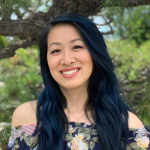“Do you have any history of mental illness in your family?”
I curl my fingers in my lap and glance up at the ceiling. An answer is ready on my lips but I hesitate; there’s always a chance that I don’t know the full truth.
“No,” I say. “Not that I know of.”
My mother and grandmother come to mind. If there is any semblance of neuroticism in me, it would definitely have been from one of them.
The psychiatrist smiles and scribbles on her clipboard. “No worries. I just have to ask.”
I had selected her because of her Chinese background, hoping she might understand any cultural concerns around mental health I might bring up. I was hopeful that she would prove more fitting than my past experiences. The last time I saw a psychiatrist, I was around 7 or 8 and stepped into a white woman’s office with no understanding of what psychiatrists do.
Appalled by my work ethic and grades throughout elementary school, my parents began tossing around the idea that I had ADHD. They sought an explanation for my lack of discipline and inability to absorb academic material as quickly as they had hoped. If their friends’ children were picking up fifth grade math in the third grade, then maybe something was wrong with me. According to my parents, I had gone through a few therapy sessions until I “improved” — whatever that meant.
Twenty years later, I am sitting on a couch in a different psychiatrist’s office, wondering if after all this time, I'm back where I started.
Only this time, I am 28. This time, I‘ve come of my own volition. This time, after our first intake session, the psychiatrist will sit me down for a second follow-up appointment and tell me: “I think you’ve been struggling with anxiety for a long time.”
*
The concept of mental health and mental disorders was almost nonexistent in my family. Growing up as a second-generation Chinese American, my family had no language for heavy notions like anxiety, depression or traumatic stress. My parents cared, but they had never heard of intangible conditions, such as mood or feelings, becoming so disabling and distressful that a person could cease to function as “normal.”
Although I started hearing about disorders like anxiety and depression during high school, understanding why and how my peers experienced them was difficult to grasp. Many of the behaviors that granted them a diagnosis didn’t seem like “abnormal” behaviors. When it came to low moods or anxious thoughts, how much was too much? In my household, being “too sad” to complete my daily homework assignments or to get out of bed in the mornings was unheard of. My parents were authoritarian; if I wanted to avoid harsh, painful punishments, then I had no choice but to exercise performance upkeep regardless of what might be going on for me internally. My private sphere did not operate within the scope of empathy or emotional consideration but on an efficient duty-based, achievement-oriented structure.
Since my grandparents worked hard to give my parents a good life, who then, in turn, worked hard to bring me a good life, the expected way for me to thank my entire family lineage was to be a dutiful, diligent daughter and live the blessed life they intended for me and my future offspring. Because they left Taiwan to immigrate to America, it would be disrespectful of me to squander the opportunity they’ve afforded me. Diligence, frugality, unity and filial piety — some of the main core values rooted in traditional Chinese culture. Whether we felt anxious or depressed should have had no influence on our determination to succeed.
In line with filial piety, I learned not to speak about certain community matters outside the private sphere. In Chinese culture, a family’s public image is not separate from any one member’s public image. Even if an aunt was laundering money or if my grandfather stopped talking to an uncle after a hairy dispute, I was forbidden to speak of it to anyone outside the bounds of our home. It also didn’t matter if an intense fight broke out between my parents, or if a recent bad grade or unacceptable social behavior in the public eye earned me a punishment so severe that I’d feel the sting on my skin until the next day. Despite any emotional hardships I struggled with, it was imperative that I stay silent or else risk the communal shame I would bring upon me and my family.
Ironically, these seemed like major elements that could lead to the development of a mental disorder. The pressure of my culture’s high achievement standards and authoritarian parenting styles, coupled with the lack of emotional openness and outside support, not only built a high amount of stress and negativity but also stifled any awareness of the need for mental care. If there was any history of mental illness in my Asian American family, it probably went unrecognized or unspoken. Given the cultural context of how we related to one another, my family did not perceive a correlation between an individual family member’s mental health and behaviors that were considered deviant and maladaptive from a traditional Chinese perspective. Dishonoring the family or breaking away from the community was deemed far more problematic than experiencing persistent feelings of worthlessness or enduring crippling stress.
It wasn’t until much later that I would come to see the harmful consequences of neglecting one’s mental health for an extended period of time, especially in a foreign country whose dominant culture was so different from our own.
*
The number of times my parents talked to me about my own mental health when I was growing up can be counted on one hand. Even when one of my teachers suggested to my parents that I could have ADHD, it was never a discussion we had together. Any contemplation was held in whispered conversations or unspoken signals and sprung on me out of nowhere, without warning, when my involvement was practically necessary.
“It’s been said that this pastor is such an upstanding man of faith that anything he prays for comes true,” my bǎbá told me at our annual summer church retreat. He and mǎmá had dragged me into the back of a line forming outside the camp’s main sanctuary with this explanation as a lead. No doubt, he thought it would pique my interest, especially as a 7-year-old girl. “It’s just like the genie from Aladdin, except real.”
“Do I get three wishes too?” I asked, testing.
“There are a lot of people in line,” mǎmá said. “Each family will probably be limited to one.”
Before I could decide which need or concern in my life was most pressing, bǎbá told me their plan.
“Since we only get one request, how does it sound to ask for prayer for your attention span?”
Upon seeing my confused expression, he continued to explain.
“After discussing it with your teacher, it’s become clear that you’re having trouble concentrating and paying attention at school. It’s called ADHD. Do you know what that is? It’s about your brain’s ability to pay attention and focus. That’s why when adults talk, you don’t listen as fully. As a result, you aren’t learning as best as you can. It’s not your fault. We know you’re smart. That’s why I think we should ask this pastor to pray for your attention span to get better; it will help you excel in so many ways.”
“Is that really the problem with me?” I wondered to myself.
At the time, compared to some of my most admired classmates, it definitely felt like I struggled more with absorbing information. Maybe this was the answer to my academic problems.
When we entered the sanctuary, we found the pastor seated in the front row pew. With shaky knees, I walked up with my parents in nervous anticipation.
The pastor sat us down and asked my dad what we wanted to pray for today. I was curious how he would explain my present “concern,” as having an attention deficit seemed like such an arbitrary struggle that had nothing to do with Christianity. In the end, he framed it as an attention shortage rather than as a mental disorder and included his belief that if I could “heal” from this, I could increase my chances of succeeding in school.
The pastor, who was also Chinese, understood at once. Laying a hand on my head, he began to pray.
*
Truth be told, before I saw the psychiatrist as an adult and was diagnosed with anxiety, I knew of one confirmed case of mental disorder in my extended family.
One of my cousins on my mom’s side was diagnosed at age 19 with catatonia disorder. When she first told me about it almost a full year later, mǎmá initially classified it as schizophrenia — a word she could barely pronounce in English — along with a nonchalant unloading of the news that although my uncle was handling it well, my grandpa was no longer speaking to him or that part of the family. When I asked why and how it happened, she didn’t seem to have any clear answers. She simply said that my grandpa would dissolve into angry admonishments and heated tirades nearly every time he ended an interaction with my uncle.
When my psychiatrist asks me four years later for any history of mental illness in my family, I consider the word “history” and decide my younger cousin’s case doesn’t count as something that could have affected me in the past. Not only is he younger than me, but despite being family, I also hardly ever come into contact with him.
“Generally speaking, there’s a genetic component to mental illness,” my psychiatrist tells me near the end of our follow-up session. “I could be wrong, but after hearing about your upbringing and assessing your family dynamics, I suspect you do have family members who may struggle or have struggled with anxiety and/or other disorders but had no idea.”
Shrinking lower in my seat, I try to imagine it.
The sight of my grandmother’s kitchen, with all her recyclable newspapers and empty oatmeal packets, tiptoes towards the image of a hoarder’s den. Mǎmá has a habit of flying into a rage whenever a series of tiny details in a plan goes awry. Bǎbá doesn’t display signs of neuroticism, but he has a callous and unrelenting will that often overpowers my resolve. Whether mental illness runs in my family or not, I don’t know how to make sense of these behaviors in the context of our culture. If it's true that I’ve been struggling with anxiety all this time, then did I ever have ADHD?
When I pose the question to my psychiatrist, she reminds me that ADHD shows up differently in children and adults. I tell her I need time to think. I had come to her after five frustrating years of trying and failing to push my writing career off the ground, hoping I could obtain some form of medication to boost my focus and clear any mental or creative blocks. Instead, my psychiatrist diagnoses me with anxiety first and prescribes antidepressants.
For the next few days, rather than alleviating my concerns about my mental condition, my diagnosis sends me deep into a long reflective spiral.
“You mentioned you received frequent punishments growing up that often involved being physically hit and/or revoking of privileges,” my psychiatrist had pointed out. “From what I heard, it sounded like it felt inescapable, especially since you were so young. I think over time, those things add up.”
“But a lot of Asian families are like that,” I tried to rationalize. “I’ve never had a mental breakdown or panic attack, and I never feel physical tension in my body.”
“It doesn’t matter, anxiety can manifest differently for different people. For you, a major thing I’ve noticed is ruminating on unhelpful thoughts constantly and driving yourself into an ‘overanalysis paralysis.’ Just think of it this way:
“Imagine there’s a snake in the room. Your fight or flight instincts would kick in. You’d probably jump up on the couch, maybe even scream. Your heart would be racing, your blood would pump faster, and you’d be on edge, right? Now if there was actually a snake in the room, your reaction would be completely normal and expected. However. Imagine we removed the snake. The expected response would be for those anticipatory feelings to stop once the threat is no longer there. But for people with anxiety, for people like you, the tension of ‘being on edge’ persists even long after the snake has been gone.”
Still not understanding, I frowned. “But I’m not afraid of snakes.”
*
When I think about the lack of visibility around mental health in Chinese communities, I consider the construct of mental illness.
The DSM-5 lists “clinically significant distress or impairment in social, occupational or other important areas of functioning” as a diagnostic threshold for most psychiatric disorders. It’s a criterion found under each set of classifiers for most, if not all, of the diagnoses. The GAF (Global Assessment of Functioning) also measures the severity and impairment of people’s symptoms within the contexts of these domains. This suggests that experiencing “significant distress” in “important areas of functioning” is one of the larger measures we as people use when identifying a mental diagnosis.
In retrospect, when bǎbá told me I had ADHD, he might have been accepting the diagnosis out of convenience. As a workable problem, an ADHD diagnosis would absolve him of any shame or guilt brought about by my academic woes. My parents were receiving “significant distress” from my lackluster academic performance, which for them was most certainly an “important area of (occupational) functioning.”
Ever the problem-solving engineer, bǎbá must have decided that the most efficient way to expedite my growth towards overcoming these perceived deficits is to send me to rehabilitative therapy and eradicate the obstacle. It never occurred to them that the frequent punishments and harsh disciplinary actions they inflicted on me, especially during academic tutoring sessions, could have made it more difficult for me to learn. For them, ADHD was the culprit, not anything they or my grandparents did to our family.
My psychiatrist had said that over time, things add up, but for the next five months, I swept the question of anxiety under the rug. It wasn’t until the following summer, when I returned home and spent an entire week cleaning up my childhood room, that I began to see my psychiatrist’s point.
Going through my yearbooks, old letters and old lives unearthed evidence of a timid, apprehensive girl who was always too afraid to take initiative even when given the opportunities. I spent the majority of my life living within the bounds of my own bubble, forever afraid of making mistakes because nearly all of my erroneous behaviors were met with severe punishments from either my parents or grandparents. I knew I’d often struggled with overthinking to the point of never taking action, but reflecting back on the course of my childhood up until now, with respect to the idea that I had and still have anxiety, brought me a renewed sense of clarity.
For the past few years, I had been viewing myself as a caged bird with clipped wings, trapped by metal bars, too broken to fight my way out. I would hit mental block after mental block in every significant area of functioning, without any hope of overcoming the tall walls. I thought I needed to sprout better wings or remove the cage to spread my arms and fly. What my new understanding of anxiety gave me was a significant, identifying piece of the puzzle. When slotted into the larger context of my entire life, it altered the canvas and forced me to realize:
I was seeing it all wrong. My wings are not clipped. There has never been a cage.
*
In my six month follow-up with my psychiatrist, I explain my revelations to her. I ask her how to differentiate between going through a difficult phase in life and having anxiety. I’ve been able to “get past it” enough to survive before, after all.
“Let me ask you this,” she counters. “How long have you been feeling ‘stuck’ due to your ‘overanalysis paralysis’ tendencies?”
I shift uncomfortably in my seat. “A while.”
“If you don’t think it impedes your life in any way, you don’t have to take the meds. You can continue on how you’ve always been going and be content with that if that’s what you want. But you’ve been bringing up all these concerns about feeling unable to move forward and accomplish your goals. It sounds like you could really benefit from removing those blocks.”
I have so many more questions and concerns, a long list of worries that scrolls on for miles. The more items I ask about, the clearer the irony of the situation becomes. Once again, I am overthinking something out of deep apprehension to delay the moment where I have to make the leap. Behind me lies my previous life; ahead of me stretches an unknown path.
There has never been a cage, I remind myself.
With a deep breath, I fold my hands in my lap.
“Okay. I’ll try it.”
I started my medication on the lowest dose possible. My psychiatrist checked in with me every week or two for a month as I slowly built up to a comfortable amount.
I felt a difference in the way I approached common obstacles in my daily life, and the usual scatter of minute concerns crowding my brain seemed to settle down in the dust. I used to grasp onto those worries with a vehement refusal to let go, but with time my mind began to relax and found more space to breathe.
Although I was experiencing positive changes, one variable remained the same. I felt an inexplicable sense of shame at the beginning and kept quiet about my decision to go on meds from everyone except my husband. Logically, I knew it wasn’t a sign of weakness to be on meds, nor did I judge anyone for taking them, but the idea of what my family would think and feel if they found out discouraged me.
Mental illness will always be a tricky sea to navigate in my family. Not long after I accepted the diagnosis and the meds, I started noticing the possibility that another family member has been struggling with a psychiatric disorder.
A cousin on my dad’s side began showing signs of experiencing delusions and disorganized speech patterns. He is a year older than me and used to work as a GrubHub delivery man, a job he would occasionally complain about through Facebook. But in recent months he’s been speaking about his suspicions of being watched, sometimes naming full names of people who are supposedly trying to kill him. Furthermore, he now frequently alludes to himself as Job from the Bible and makes references to his pastor and God in accusatory statements.
In one of the more extreme instances, he made multiple posts in succession, in all caps, about his pastor sending him to a mental institution to die. Worried about the repercussions of such an event, I contacted bǎbá, who knew the pastor and informed me that the incident never happened.
My stomach dropped at the news. The whole situation brought me both concern and skepticism. Eager to get to the bottom of this, I urged bǎbá to convince my uncle to take my cousin to a psychiatrist. My uncle, however, decided to ignore our suggestions. I sent bǎbá articles about mental health and schizophrenia to pass along to him but he refused to read them. He claimed he had already read enough and understood my cousin’s problems just fine. The more my dad prompted, the more my uncle insisted that he and their other siblings stop talking about it. Fed up with their attempts to discuss the matter, my uncle eventually snapped and left the family group chat.
Although I received an anxiety diagnosis a year ago, I still don’t know how to best navigate the conversations about my own mental struggles, let alone my cousin’s, especially within the cultural dynamics at play in my family. I can only hope that the prognosis and our relationships will run their course.
A few weeks after my uncle left the group chat, he and my cousin returned to Taiwan indefinitely. According to bǎbá, my uncle believes my cousin will be happier in the country where he spent most of his childhood. I still see his Facebook posts. He no longer talks about the previous pastor and has been dropping different names, but the nature of his speech has hardly changed. They have merely adapted to relate to his new environment.
When it comes to navigating mental health in our culture, I recall the imaginary snake my psychiatrist mentioned. It slithers around the room where my whole family convenes but nobody pays it any mind.
After all, none of us are afraid of snakes.










Comments